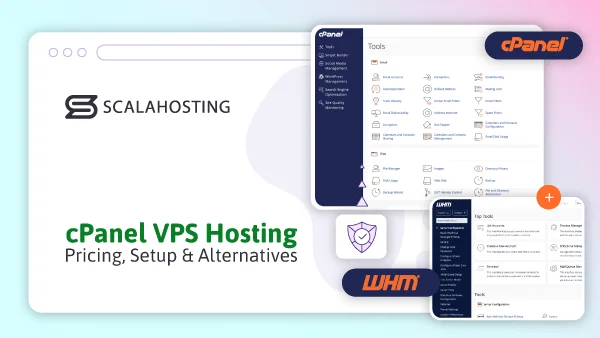Choosing the best Magento Hosting provider can be a smooth experience if you know what to look for. If you need helping find yours or are thinking of migrating, this is the right place for you to be.
To fully understand the hows and whys of finding the ideal Magento host, let’s start from the beginning.
What is Magento?
Magento may be dwarfed by WooCommerce in popularity, but it remains a top choice of eCommerce platform. For those running or wanting to build an online store, this can be a fantastic option.
Originally built and released as open source software (oss) in 2007, Magento was bought by Adobe in 2018. Today it comes in both open source and commercial variants. The latter are provided by Adobe either as on-premise or Platform as a Service (PaaS).
The open source version is still freely available for use at no cost and is also where our interest mainly lies in. One of its key advantages is the fact that it’s not tied to any other web application or host. The choice remains in your hands.
Challenges Faced by Magento Stores Owners
If you’ve been having Magento problems, chances are that they’ve come about as a result of your hosting service. Although flexible, Magento may struggle a bit if the conditions are less than optimal.
Storage Limit
Most web applications will grow in size over time, especially those built with dynamic use in mind like Magento. Even if you don’t increase the size of your site, you may find it growing past your hosting limits after some time.
Slow Performance
Due to it being a web application, Magento does need a little more in terms of system resources to run smoothly. This is especially true as the volume of your traffic scales up. Unfortunately, some hosts may scrimp on some areas which might slow down Magento’s performance – such as memory.
Server Management
Although Magento is less dependent on environmental factors than many other applications, it does have its prerequisites. Installing those and keeping them up to date can take up your time and resources. Not all hosts offer managed hosting plans – something which can prove invaluable for Magento site owners.
No Scalability
Sometimes you may find you have hit a brick wall as far as plan progression is concerned. This typically happens on shared hosting plans. Because of the potential for growth in eCommerce, Magento site owners often need something more scalable and can accommodate growth to any level.
Types of Website Hosting Solutions
Technically, Magento can be used on all kinds of web hosting plans and platforms. However, not all of them are ideally suitable for the nature of this application. In general, web hosting is broken down into three main categories:
Shared Hosting
The most basic of web hosting types, shared hosting plans offer single-piece hardware platforms that are shared among many users. At times, each server may be crowded with hundreds of accounts – all sharing the same resources.
Because of this, shared hosting accounts are rarely suitable for Magento hosting since eCommerce sites need good availability of resources to function well.
Dedicated Hosting
Dedicated hosting is the highest end of web hosting plans available. Opting for dedicated hosting means you get an entire server to yourself, with complete freedom to configure and run it as you wish.
While this may seem the ideal scenario for magento hosting, dedicated servers can also be incredibly expensive to run. Even if you’re hosting a small to medium size Magento site, you’ll have to pay for the entire server.
Virtual Private Server
Virtual Private Server (VPS) plans are the most suitable for Magento hosting. They offer the perfect mix of scalability, dedicated resources, and increased security and reliability that Magento sites thrive in. Prices scale with the resources you use, so cost is more easily managed as well.
What is Magento Hosting?
Magento hosting is a type of web hosting plan that a service provider offers specially to cater to those seeking to run the Magento platform. Some web hosts may simply re-brand existing plans as Magento hosting, while others may take a more specific view and offer special features like the inclusion of SSL or fast-application deployment options.
Why is Other Hosting Not An Option?
Technically, other hosting is an option, but if you opt for those, there is a risk that the environment may not be ideal for hosting your Magento site. While there might be ways to overcome those issues, why create problems when none should exist?
Criteria to Choose a Magento Hosting
There are many things you can end up wanting or needing for Magento hosting, but it is better to be aware of what to avoid instead. Some areas of concern when looking for magento hosting include:
Major Security Issues
Even those interested in running small Magento sites should be aware that while often cheaper, shared hosting is the least secure option. eCommerce sites typically need to process personal and financial data, which puts security at the forefront of concern.
Inefficient Performance
Because of the higher amount of resources and demands from eCommerce customers for fast performance, Magento site owners should opt for hosting that has the edge in this. Ideally, look towards VPS-based Magento hosting plans for optimal performance.
Frequent Downtime
Reliability is a major hallmark for eCommerce sites and those running Magento should be no different. Look for a trusted web hosting provider that has an established reputation in the industry. Having an unreliable site can result in strong brand damage for your site and ultimately, loss of revenue.
Unmanaged Vs Managed Magento hosting?
Although having Managed or Unmanaged hosting is often up to your preference, when it comes to Magento hosting it would be better to choose a Managed option. Having the web host take on technical maintenance of your Magento site will free up your own time and resources to focus on your core business – driving traffic to the site.
While some web hosting companies may charge a premium for Managed Magento hosting, ScalaHosting offers excellent Managed VPS Magento hosting at very competitive rates. Backed by their excellent reliability and support, this is a great choice for you to base your Magento site on.
How Many Products are There and Types?
Aside from looking towards just the host, you should also pay attention to the specifications of your site. The more products and SKUs of them you have, the more likely it is your hosting requirements will increase.
What’s the Traffic Behavior Like?
If you are already running a Magento site but considering a move, another metric that comes into play would be your existing traffic. By keeping an eye on the volume of traffic and number of requests your visitors are making, you can more accurately estimate how much resources you’ll need.
Where’s your Majority of Traffic From?
Since speed is a strong factor influencing visitor traffic and purchasing, knowing where your visitors mostly originate from can be helpful. If you’re targeting US-based traffic for example, choose a host with servers in or near that location.
ScalaHosting offers users a choice of two server locations which are very strategically located in:
- Texas, USA,
- Sofia, Bulgaria.
Magento Hosting Requirements
Magento is one of the most versatile eCommerce platforms in the market and can technically be run on almost anything. However, it thrives when operated in the right environment and that is typically the Linux-Apace-MySQL-PHP (LAMP) stack.
This means you’ll ideally want to find a Magento hosting plan that runs a Linux distribution base, supported by MySQL database, Apache web server, and supports PHP. Exact requirements may vary depending on what version of Magento you will run, so make sure to check the prerequisites.
Secure Sockets Layer Certification
There should be no need for a reminder of this, but eCommerce sites absolutely must run with a Secure Sockets Layer (SSL) certificate in place. This helps to assure your customers that your site is safe to use, since the SSL helps to establish an encrypted link between them and the site.
Do note that all ScalaHosting Magento plans come with free SSL included. For those seeking better options, you can also get GeoTrust and Symantec SSL certificates here as optional add-ons.
Tips to Get a Good Magento Hosting Provider
The ideal Magento hosting provider will offer you plans that are built on rock-solid foundations. These will often have distinct characteristics such as reliable and strong performance, strong security, and a good support ecosystem.
Some of the things you can keep an eye open for include –
- Reputation – Magento hosting providers with a strong track record can make a big difference to you as a site owner. Always pick a name that’s spoken of positively.
- Speed – Although it can be difficult to gauge the performance of a host before using it, finding a site on their servers and running tests on it can give you a ballpark number to expect.
- Support – Get in though with the hosting provider directly and see how quickly they respond. Also keep an eye on what support channels they have available.
- Reliability – Some Magento shots will offer uptime guarantees in writing on their site. It may be buried in the Terms and Conditions, but look for this number and its presence.


Final Thoughts
The requirements may be a little higher when it comes to Magento sites, so make sure you work with a good hosting partner. Making the right choice can free you up to develop your Magento site to its fullest potential and avoid any potential problems.
Remember, eCommerce sites rely on security and performance, always find a magento host that has an edge in these areas. And yes, VPS-based Magento hosting is better, so look for Managed VPS-based magento hosting where possible.
Frequently Asked Questions
Q: Does Magento offer Hosting?
A: Magento is a web-based eCommerce platform and needs web hosting to run. It is not a web hosting company and as such does not have web hosting plans.
Q: What is the best hosting for Magento?
A: ScalaHosting is a reliable and trusted brand in the web hosting industry and offers several superior magento hosting plans. These include both shared Magento hosting and VPS Magento hosting.
Q: What is Magento software used for?
A: Magento helps online store users build and customize their eCommerce stores quickly and easily. It provides the framework that integrates various functions such as shopping cart, product management and listing, plus even SEO optimization.
Q: Is Magento free?
A: Yes. Since Magento was acquired by Adobe it has become available in three variants. One is a free open source distribution. The two commercial (paid) versions are available either as PaaS or on-premise releases.
Q: Can Magento run on shared hosting?
A: Yes it can. However, since it is more resource intensive, it is recommended that Magento users look towards VPS hosting plans instead for better performance.
What is a VPS – Everything you need to know!


